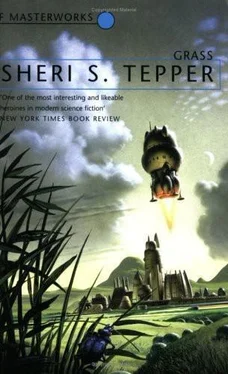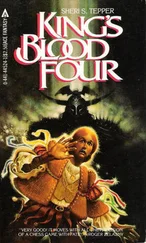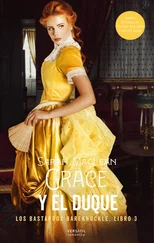Sheri Tepper - Grass
Здесь есть возможность читать онлайн «Sheri Tepper - Grass» весь текст электронной книги совершенно бесплатно (целиком полную версию без сокращений). В некоторых случаях можно слушать аудио, скачать через торрент в формате fb2 и присутствует краткое содержание. Город: London, Год выпуска: 2002, ISBN: 2002, Издательство: Gollancz, Жанр: Фантастика и фэнтези, на английском языке. Описание произведения, (предисловие) а так же отзывы посетителей доступны на портале библиотеки ЛибКат.
- Название:Grass
- Автор:
- Издательство:Gollancz
- Жанр:
- Год:2002
- Город:London
- ISBN:9781857987980
- Рейтинг книги:4 / 5. Голосов: 1
-
Избранное:Добавить в избранное
- Отзывы:
-
Ваша оценка:
- 80
- 1
- 2
- 3
- 4
- 5
Grass: краткое содержание, описание и аннотация
Предлагаем к чтению аннотацию, описание, краткое содержание или предисловие (зависит от того, что написал сам автор книги «Grass»). Если вы не нашли необходимую информацию о книге — напишите в комментариях, мы постараемся отыскать её.
Grass — читать онлайн бесплатно полную книгу (весь текст) целиком
Ниже представлен текст книги, разбитый по страницам. Система сохранения места последней прочитанной страницы, позволяет с удобством читать онлайн бесплатно книгу «Grass», без необходимости каждый раз заново искать на чём Вы остановились. Поставьте закладку, и сможете в любой момент перейти на страницу, на которой закончили чтение.
Интервал:
Закладка:
Despite this ease, this familiarity, there was disquiet and anxiety both among those who had arrived and those who had welcomed them. The burning of an estancia was not a familiar occurrence. It had happened before, but that had been long ago, in their great-grandparents’ time It was not something easy to comprehend or accept. When Persun Pollut brought news of the great trail toward the swamp-forest, anxiety deepened. Everyone knew the Hippae couldn’t get through the forest, and yet… and yet, people wondered. They were uneasy, wondering if this event betokened mysterious dangers.
The unease spread even to Portside, where those occupied in serving and housing strangers became jittery. Saint Teresa and Ducky Johns were not immune to the common case of nerves. They met at the end of Pleasure Street and walked along Portside Road, Ducky bobbling and jiggling inside her great golden tent of a dress, Saint Teresa stalking beside her like a heron, long-legged and long-nosed to the point of caricature. He wore his usual garments: purple trousers tight at the knee but baggy elsewhere, and a swallow-tailed coat cut of jermot hide, a scaly leather imported through Semling from some desert planet at the end of nowhere. His bare cranium gleamed like steel in the blue lights of the port, and his great hands gestured as he spoke, never still for an instant.
“So… so what does it mean?” he asked. “Burning Opal Hill that way. There was no one there…” His hands circled, illustrating a search from the air, then swooped away, conveying frustration.
“One person,” Ducky Johns corrected him. “That fancy woman of the ambassador’s is missing.”
“One person, then. But the Hippae dragged fire through the gardens and burned it. all of it. It’s burning now.” His fingers flickered like flames, drawing the scene on the air.
Ducky Johns nodded, the nod setting up wavelike motion which traveled down from her ears through all the waiting flesh below, a tidal jiggle, ending only at her ankles, where her tiny feet served as a check valve. “It’s why I wanted to talk with you, Teresa. The things are obviously raging. Furious. Out of all control. You knew the ambassador killed some of them.”
“I heard. First time that’s ever happened, from what I hear.”
“So far as I know, yes. Darenfeld wounded one, years and years ago, before the Darenfeld estancia burned.”
“I thought that was a summer fire. Lightning.”
“So the bons say, but others say no. The bons pretended it was lightning and began to build grass gardens around themselves, but Roald Few says the Commons Chronicle called it what it was. Hippae, going rampageous.”
He compressed thin lips into a tight line, more disturbed than he cared to admit. “Well, so! The bons are no concern of ours. If all of them got crisped tomorrow, it wouldn’t make a whit of difference to custom, Ducky. They may think they’re the pinnacle of creation, but we know different.”
“Oh, it’s not just them. It’s this plague, too. We’re hearing more and more of that.”
“There’s none here.”
“So there isn’t, which is strange on the face of it. I hear things. Asmir Tanlig has been around, asking this, asking that. Sebastian Mechanic has been around, digging here, digging there. Questions. Who’s been sick. Who’s died. Both of them work for the ambassador. So he’s trying to find out something. I talked to Roald about it. He talked to some others, including some of us here in Portside who’ve heard what foreigners have to say. Seems there’s plague everywhere but here. Hidden, though. Sanctity trying to keep the lid on it, but the word getting out, getting around.”
“So? What are you saying, Ducky?”
“I’m saying if everybody dies out there, there’ll be no custom here, old crane, old stork. That’s what I’m saying. Then how will we live, you and me? To say nothing of it being damned lonely, us here with all the rest of the human population gone and those Hippae out there, being rampageous.”
“They can’t get in through the forest.”
“So we’re told. So we’re told. And even if that’s true, think of all humanity closed in in a space no bigger than Commons. It makes me claustrophobic, Teresa, indeed it does.”
They had reached the end of Portside Road, where it ran off into ruts southward across the grazing land, and they turned as if by mutual consent to retrace their steps — more slowly on the return, for Ducky seldom walked such a distance.
Blue lamps cast runnels of luminescence on the ash-glass surface of the port. There were only two ships in, a sleek yacht in the dark shadow of a bulky warehouse and the Star-Lily, a fat Semling freighter squatting in a puddle of sapphire lume, its cargo bay gaping like a snoring mouth. In the puddle of light something moved, and Ducky put her hand on her companion’s arm. “There,” she said. “Teresa, did you see that?”
He had seen that. “No one working there this time of night.”
“See to it, Teresa. Do. I can’t move fast enough.”
She spoke unnecessarily, for the heronlike legs of Saint Teresa had already taken him off in long, ground-eating strides across the cinereous surface of the port, moving like some tall hunting bird toward that flicker of movement. Ducky struggled after him, panting, her flesh bobbling and jiggling as though a thousand small springs inside were heterodyning against one another. Her companion had moved into shadow. She didn’t see him, and then she did, one hand striking, head moving like a spearlike beak, the hand coming back with something pale and fishy wriggling in it. He turned and carried the thing toward her.
When he came close enough for her to see, she cried out in surprise. There it was, just like the last one. Another naked girl with no expression in her face, wriggling like a fish on a spear, not saying anything at all.
“Well,” he said. “What do you think of that?”
“What’s that in her hand?” Ducky asked. “What’s she carrying, and what was she doing there?”
“Trying to get aboard,” Saint Teresa said, holding the girl tight under one arm as he pried the thing from her tight fingers. He held it out, and Ducky leaned forward to look at it.
“It’s a dead bat,” she said. “All dried up. What was she carrying that for?”
They looked at the girl, at one another, full of questions and surmise. “You know who it is,” Ducky said. “It’s Diamante bon Damfels is who it is. The one they called Dimity. The one that vanished first thing this spring. It has to be.”
He didn’t contradict her. “Now what?” he asked at last.
“Now we’ll take her to Roald Few,” Ducky said. “As I should have taken the last one. Take her, and it, and ask Jelly to come along, and Jandra, and anybody else with any sense in their heads. I don’t know what’s happening here, old crane, but I don’t like it, whatever it is.”
In the Tree City of the Arbai night had come like a polite visitor, announcing itself with diffidence, moving slowly among the bridges and trellises, softly among the wraithlike inhabitants, quietly into each room to carpet every floor with shadow. Night had come gently; darkness had not come at all. Effulgent spheres lined each walkway and hung from each ceiling. They cast an opalescent glow, not enough light to work by and yet enough to see walls and floors and ramps, to know where one went, to see the faces of one’s friends, to see the ghosts as they walked in and out.
Among the houses fronting upon the high platform, several were less frequented by phantoms. In one of these Tony and Marjorie had spread their beds and arranged their belongings. The two Brothers, the priest, and Sylvan had selected another. Once that was done, they had assembled on the open platform to eat together, sharing their own rations and the strange fruits Rillibee had garnered from the nearby trees. Several of the foxen had been close by for a brief time. The humans had seen shadows, heard voices reminiscent of the great cry, felt questions in their most intimate minds, tried to answer. Eventually the presences had gone. Now the humans knew they were alone.
Читать дальшеИнтервал:
Закладка:
Похожие книги на «Grass»
Представляем Вашему вниманию похожие книги на «Grass» списком для выбора. Мы отобрали схожую по названию и смыслу литературу в надежде предоставить читателям больше вариантов отыскать новые, интересные, ещё непрочитанные произведения.
Обсуждение, отзывы о книге «Grass» и просто собственные мнения читателей. Оставьте ваши комментарии, напишите, что Вы думаете о произведении, его смысле или главных героях. Укажите что конкретно понравилось, а что нет, и почему Вы так считаете.












